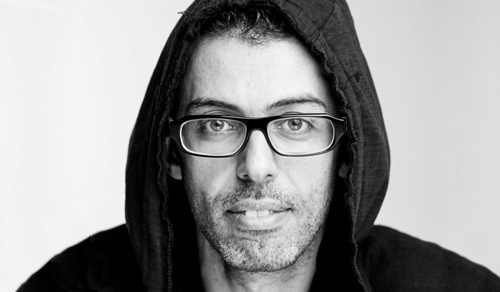Dmitri Kourliandski

Dmitri Kourliandski, born 1976 in Moscow, graduated from the Moscow Conservatory and completed post-graduate course led by Leonid Bobylev. His compositions won prizes at the international composers competitions, including the Gaudeamus Prize 2003, Gianni Bergamo Classic Music Award 2010, Johann Joseph Fux opera composition competition 2011, Andrey Voznesensky foundation “Parabola” prize 2016, Franco Abbiati 2017 Prize of Italian music critic. Moscow Art Prize 2020 Grand Prix for opera “Octavia. Trepanation” and 2nd prize for composers laboratory “Open space”. Russian theatre and music theatre award Golden mask 2021 for best composer (Octavia. Trepanation). In 2008 he was artist-in-residence of the Berliner Künstlerprogramm and in 2010 – composer-in-residence of the 2E2M ensemble in Paris. Since 2012 he is invited to give master-classes and lectures in Austria, Italy, The Netherlands, Ukraine, France, Israel, Spain, Switzerland, Russia.
His chamber opera Swerlians was staged by Boris Yukhananov in 2012 and 2015 in Moscow. In 2013 chamber opera Asteroid 62 was staged in Graz (directed by Barbara Beyer) and in Moscow (directed by Kapitalina Tsvetkova-Plotnikova). Opera Nosferatu, staged by Theodoros Terzopoulos, Jannis Kounellis and Teodor Currentzis in 2014 in Perm and in Moscow. Opera Octavia.Trepanation was premiered at Holland Festival 2017, staged by Boris Yukhananov. Performance installation Commedia delle arti, was commissioned and presented for the Venice Art Biennale Russian pavilion 2017. Opera-installation Nekyia with video by Elena Nemkova was premiered at Voznesensky centre in 2019. Opera Eurydice, directed by Anyone Gindt will be staged in Italy, France and Germany, 2020-2021.
Dmitri Kourliandski is the founder and artistic director of the International Young Composers Academy in Tchaikovsky city. Co-founder of the Structural Resistance group (StRes). Musical director of the Stanislavsky Electrotheatre.
Letters of happiness (excerpt from the 6th act), 10’ / 2020
The idea of the opera came literally at the beginning of the isolation period – in the second half of March. We all regularly receive spam, in particular the so-called “Nigerian letters” (they describe the tragic fate of fictional rich people and propose to share the capital left by victims of accidents and fatal diseases)…
In a situation where communication with the outside world is limited and communication is largely displaced into the Internet, it seemed interesting to Dmitri Kourliandski to imagine that these fictional characters and virtual reality is the only world with which interaction is possible. Virtually all of the opera’s material – both text and visual and musical – is obtained with the help of available online generators of random texts, melodies, rhythms and photographs of non-existent people (and cats). Generated texts are read out with standard computer voices. It is possible that the listener of this opera is the same non-existent, virtually generated character.
Some sounds are taken from online libraries, some are recorded by musicians – Vladimir Gorlinsky (guitar samples), Anton Svetlichny (synthesizer) and Alexei Kruglov (saxophone). In the programme, created in collaboration with Oleg Makarov, all this material undergoes fragmentation and deformation, also following the random principle. Nevertheless, Kourliandski sets a certain direction for this flow of chance, so he gets exactly the result that he needs in this or that act.
For five acts of opera, Kourliandski made the video himself. The second act presents the work of musician and multimedia artist Alexander Serechenko, also based on the principle of chance. The sixth act, the work of video artist Marina Chernikova, is inspired by the ideas of psychogeography, which has its own special relationship to chance.
The listener/viewer can even find some plot in the opera. Four non-existent characters (“the authors” of Nigerian messages) live in a non-existent Argleton (a real non-existent city). One day they receive a threatening letter from Anonymous Hacker. One of the characters knows the Hacker and tells his story. The characters hold an online conference where they decide how to deal with the Hacker. Once the problem is over, they gather at a local bar and recite poems. In the finale of the opera, it turns out that there is a love affair between the female characters.
